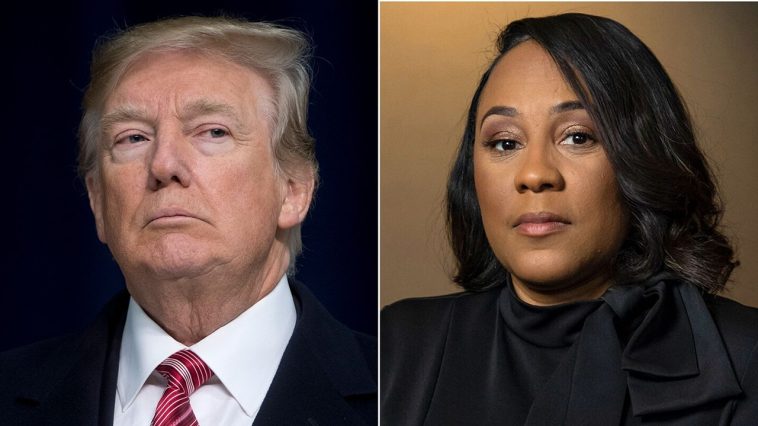LISTEN HERE:
The Fulton County District Attorney, Fani Willis, has made an astonishing request to the court, urging for a “speedy trial” involving all 19 co-defendants in the case she filed against former President Donald Trump.
Willis is determined to commence the trial on October 23rd, despite only two of the co-defendants, former Trump lawyer Sydney Powell and Kenneth Chesebro, currently being involved in the proceedings. Willis contends that separating the defendants from one another would be seen as improper, raising interesting questions about the basis of severance arguments.
During a discussion on MSNBC, Ali Velshi engaged network legal analyst Glenn Kirshner in a conversation about the reasoning behind arguing against severance in this case. Kirshner explained that prosecutors generally prefer co-defendants to stand trial together, while the defendants often seek to distance themselves to try the “empty chair defense.”
Kirshner suggested that if Chesebro were to be tried alongside Powell and a couple of other co-conspirators, he might claim that John Eastman, a constitutional scholar and law school Dean, who should have been present but wasn’t, was the true architect behind the alternate electors scheme. This strategy could introduce reasonable doubt among jurors, potentially leading to a hung jury and no decision.
Furthermore, Kirshner anticipated that “a chorus of voices” from many of the co-defendants would argue against the trial commencing on October 23rd, citing inadequate preparation time.
The legal analyst concluded that Judge Scott McAfee’s response to Willis’s insistence on a speedy trial would be intriguing to witness. Meanwhile, the Republican-led House Judiciary Committee has called upon Willis to provide information regarding the prosecution of Trump, expressing concerns about the possible politicization of her actions.
“Turning first to the question of motivation,” the committee’s letter stated, “it is noteworthy that just four days before this indictment, you launched a new campaign fundraising website that highlighted your investigation into President Trump.”
The panel also criticized her decision to select a forewoman for the special grand jury who openly discussed her eagerness to subpoena and swear in President Trump. The letter further pointed out that the Fulton County Superior Court’s Clerk publicly released a list of criminal charges against Trump before the grand jury vote.
Additionally, the letter highlighted how Fulton County officials intended to treat Trump like any other criminal defendant, including the possibility of mug shots and a cash bond requirement, setting him apart from officials in other jurisdictions.
The committee raised concerns about the timing of the indictment, stating, “In February 2021, news outlets reported that you directed your office to open an investigation into President Trump.
Yet, you did not bring charges until two-and-a-half years later, at a time when the campaign for the Republican presidential nomination is in full swing.” The committee’s letter strongly implied that Willis’s motives were suspect, given the appropriateness of the timing.


